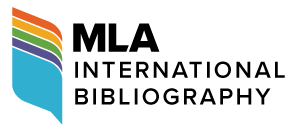La ciudad en cuatro poetas en lenguas indígenas mexicanas
DOI:
https://doi.org/10.36798/critlit.v0i23.387Keywords:
literatura mexicana, poesía indígena, ciudad, comunidad, testimonioAbstract
The purpose of the essay is to explore the perception of the city from the perspective of four poets that shape the spectrum of contemporary Mexican indigenous poetry: Karen Peñate (Tumbalá, Chiapas), Mikeas Sánchez (Chapultenango, Chiapas), Martín Tonalméyotl (Chilapa de Álvarez Guerrero) and Wildernain Villegas (Mérida, Yucatán). The analysis begins the journey —about the presence of the city— from the mythical to some key moments of 20th century Mexican literature to finally inquire into the configuration of the city in the works of these four writers; pausing in each poem leads us to expand the discussion around the dynamic, problematic and fluctuating notion of "indigenous literature", as well as the topics attributed, by prejudice or inertia, to the poetic production in native languages, such as nature or lyrical landscaping. However, I stop at the representation of the city that becomes a space on which a critical gaze is exercised, even in intersection with the community space. Similarly, writers' testimonies of the city's presence as a catalyst for writing are integrated. This valuable contribution from each poet will allow reflection on the close interaction between the author and the poem, for this exercise I rely on Helena Beristáin. Likewise, on Luz María Lepe Lira regarding the types of indigenous literature and the postures of resistance.
Downloads
References
Aguilar, Yásnaya y Terje, Jan. La lengua zoque. Centro de Investigaciones Multidisciplinarias sobre Chiapas y la Frontera Sur / Universidad Nacional Autónoma de México, 2017.
Beristáin, Helena. Análisis e interpretación del poema lírico. Universidad Nacional Autónoma de México, 1989.
Blanco, José. La literatura en la Nueva España. Cal y Arena, 1989.
De la Garza, Mercedes. El legado escrito de los mayas. Fondo de Cultura Económica, 2012.
Editorial Herder México. “Juana Karen”. herder.com.mx/es/libros-books/corazon-de-selva-ipusikal-matyelum/juana-karen/pluralia
García Canclini, Néstor. “México 2010: una ciudad que improvisa su globalización”. Alteridades, no. 26, 2003, pp. 7-14.
León-Portilla, Miguel. Quince poetas del mundo náhuatl. Diana, 1994.
León-Portilla, Miguel. Mitos prehispánicos. Universidad Autónoma de México, 2016.
Lepe, Luz María. Lluvia y viento, puentes de sonido. Literatura indígena y crítica literaria. Universidad Autónoma de Nuevo León, 2010.
____. Relatos de la diferencia y literatura indígena. Travesías por el sistema mundo. Grañén / Porrúa / Universidad Nacional Autónoma de México / Universidad Autónoma de Querétaro, 2018.
López, Alfredo y López, Leonardo. El pasado indígena. Fondo de Cultura Económica, 2011.
Peñate, Juana Karen. Corazón de selva / Ipusik’al matye’lum. Pluralia, 2013.
____. Entrevista oral. Por Krishna Naranjo Zavala. 03 junio 2019.
Pulido Tirado, Genara. “El canon literario en América Latina”. Signa: Revista de la Asociación Española de Semiótica, no. 18, pp. 99-114. DOI: https://doi.org/10.5944/signa.vol18.2009.6201
Ruiz, Mikel. “Mu yanuk mu nichimal jbakutik / Ni misteriosos ni poéticos”. Tierra Adentro, 21 febrero 2019, www.tierraadentro.cultura.gob.mx/ni-misteriosos-ni-poeticos/
Sánchez, Mikeas. Kobikiajubä’jaye / Selección poética. Conaculta, 2012.
Tonalmeyotl, Martín, coordinador. “Xochitlájtoli: Juana Karen”. Círculo de poesía. Revista electrónica de literatura circulodepoesia.com/2017/11/xochitlajtoli-juana-karen/
____. “Xochitlájtoli: Wildernain Villegas Carrillo”. Círculo de poesía. Revista electrónica de literatura, circulodepoesia.com/2019/01/xochitlajtoli-wildernain-villegas-carrillo/
Villegas, Wildernain. Entrevista oral. Por Krishna Naranjo Zavala, 10 febrero 2021.
____. Lluvia que la noche dicta / Áak’abe’ ku ya’alik táan u k’áaxal ja’. Secretaría de la Cultura y de las Artes de Yucatán, 2012.
Downloads
Published
How to Cite
Issue
Section
License
The authors always maintain the moral and patrimonial rights of their work. They only grant the non-exclusive license of use to Connotas for their first publication. Therefore, the authors may make other independent and additional contractual agreements for the publication of their article, review or other text originally published in Connotas or with modifications (including the title) as long as they clearly indicate that the paper was first published in Connotas. Revista de crítica y teoría literarias. Connotas undertakes not to make commercial use of the texts it receives or publishes.
See also "Copyright and Licences".





